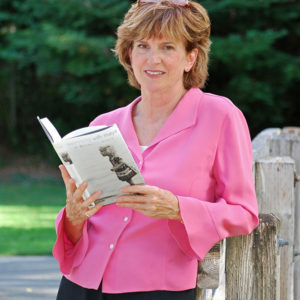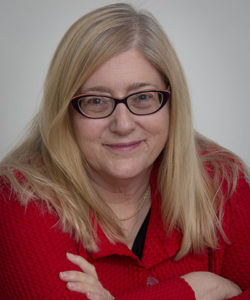Better Late: A Neurodiverse Love Story
“I deserve so much better,” I whisper into my husband’s ear as we embrace in the kitchen.
Alex’s barrel chest and round belly press against me.
“Yesterday you left me waiting for you at the restaurant,” I remind him. “That’s not okay. You can’t do that.”
I’d waited for an hour before giving up and eating alone. He texted me later with an offhand “Sorry, I got caught up in some work.”
I was so upset that I’d Googled “legal separation,” and then went to bed early without saying goodnight.
Now it’s breakfast time and we’re hugging.
He lifts his head. Our eyes meet, and as always, his are blank pools. Alex has an autism spectrum disorder (ASD), undiagnosed officially, but probably Asperger’s syndrome. Our health plan refuses to evaluate him – they say he’s too old, he won’t change, so why bother? I, on the other hand, am the princess who feels the tiny pea through 20 mattresses.
My husband is one of the kindest people I know – he’ll drop everything to fix a neighbor’s computer, won’t let me carry a bag or lift a box, opens doors for me, picks up the check – but when the gods passed out empathy, they skipped him. Most people with Asperger’s lack what psychologists call “theory of mind.” They are not capable of understanding the feelings of others. Alex also has a condition called – ironically – Alexithymia, an inability to find words for feelings.
So, while Alex would give you the shirt off his back without complaint, he will never be able to understand or respond to your feelings with empathy. He will be mystified.
Dance Partners
When we met at a local Zydeco dance club in 2012, I was 64 and Alex was 60. He swept me off my feet. He made me feel safe and special, kissing the back of my hand at the end of each waltz. Six years later we got engaged. In between, we broke up for four years but remained dance partners and friends. Through a series of coincidences that led us back to each other, we ended up deciding that our interregnum was a dreadful mistake.
On the September day we married in 2019, I was 71 and Alex was 67. We gambled that we could make it work. Our story is one of overcoming long odds, of resilience, of confronting the challenges of a “neurodiverse” marriage, and of hope for people who fall in love late in life and dare to commit to one another.
This has not been an easy or quick evolution for either of us. He’s a tech geek with difficulty reading emotional cues and body language. I’m a writer with complex grief and a raft of traumatic experiences whose feelings overflow. As our therapist told us: “One of you is an ocean fish, the other is a freshwater fish, but you’ve managed to meet and swim in the brackish waters.”
My new memoir Better Late: A Neurodiverse Love Story gives a blow-by-blow account of how Alex and I have navigated the “brackish waters.” Currently out on submission, my book explores a neurodiverse marriage through the neurotypical partner’s viewpoint.
Thriving in our 60s and Beyond
Studies show that older people are happier than their midlife and younger counterparts. We are wiser, more patient, and often more grateful. We don’t sweat the small stuff. We’ve learned to roll with life’s punches and survive the inevitable transitions and setbacks. Better Late confirms this hypothesis.
My ability to survive and thrive after hard knocks is a major asset in my relationship with Alex. I’ve faced the worst and even written a book about it. Swimming with Maya is about the death of my 19-year-old daughter Maya. And I’ve faced other challenges: two divorces, the overwhelming responsibility of being a single mother, being both breadwinner and sole custodial parent, making multiple moves, and shouldering the stresses of a corporate career.
Alex has dealt with being gifted at science and technology but puzzled by people and relationships – to the point of estrangement from his parents and former spouses. Social interactions, even direct eye contact, can provoke anxiety for him. Over time, he has become very adept at “autistic masking,” the ability to fit in by copying neurotypical social and relationship behavior.
As we work on our communication issues, he has become more able to tolerate strong feelings and conflict, but it’s still a struggle. A cross word from me can cause him to withdraw, sometimes for days.
Becoming More Myself
Learning to manage my emotions and increase my self-care has made me a better partner. As a younger woman, I didn’t understand my character or my own needs well enough to choose wisely or deal with conflicts effectively. In my 60s, I became more truly available. Better Late explores how our relationship baggage does not have to define us.
One of the oft-noticed maddening things about being an older woman is what some call “invisibility.” But in many ways, this lack of visibility can become our superpower. I don’t worry about my looks anywhere near as much as I did a decade ago. I don’t give much thought to what others think of me – earlier in life, I was obsessed with how I appeared to others.
All these qualities give me the freedom to be more myself. When anyone asks why an independent-minded successful woman would choose marriage in the eighth decade of her life, I can honestly say because it feels right. I am mature enough now to know what I want, to speak my truth calmly and clearly, and to open my heart to another flawed human being. Better Late tells the story of this hard-won wisdom.
Our married life is far from perfect. Like all marriages, it is an ongoing negotiation, an oscillation between closeness and distance. But we are best friends. We are there for each other. And we’ve had to be. In addition to riding out the Covid pandemic, both of us have been diagnosed with cancer since we married, and successfully undergone treatment. My cancer, clear cell carcinoma of the cervix, was removed with surgery early in 2020. Then, in the spring of 2021, Alex was diagnosed with prostate cancer. His treatment decisions were more complicated than mine and it took many months for him to decide, a process I found nerve-wracking. He was ultimately treated successfully with high-dose brachytherapy and external beam radiation. While shocking, these diagnoses woke us up to our mortality; because of excellent medical care, we emerged alive and well.
Despite it all, we enjoy having adventures large and small, from our honeymoon on the cliffs of the Cinque Terre in Northern Italy to our hikes in the hills above our retirement community. We celebrate often and complain as little as possible. We are happy to be alive and thankful to be together. In times of stress or conflict, we have decades of life experience to fall back on, and a deep sense of gratitude to give us perspective.
Ours is the story of how two people “of a certain age” found love, decided to marry, and faced the challenges of marriage in a pandemic lockdown – and along the way discovered our strengths as well as weaknesses, our differences as well as compatibility, and claimed our wisdom and resilience.


